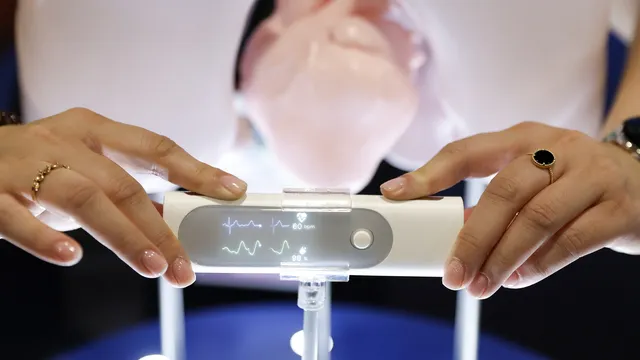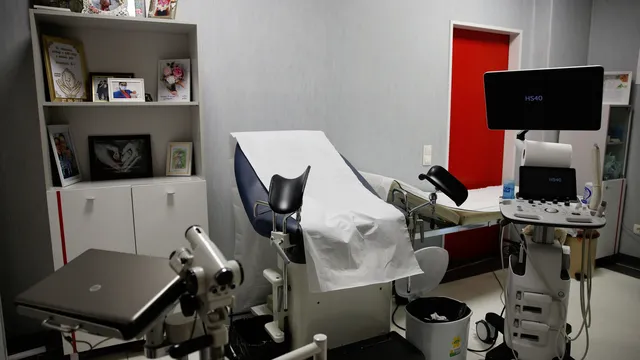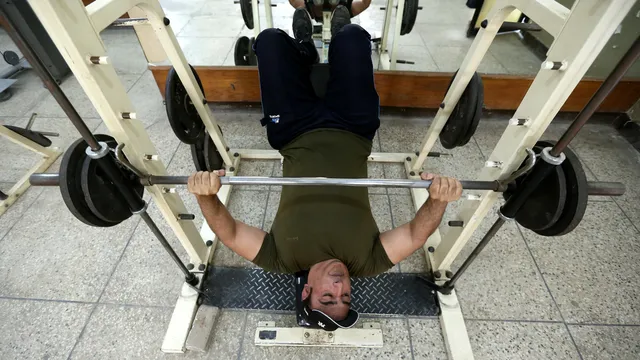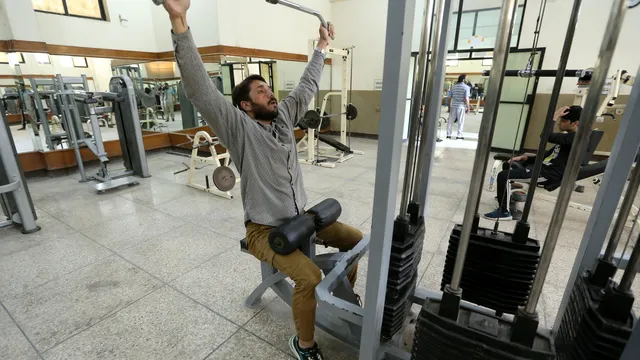Menopause can cause symptoms in many parts of the body, and sometimes in unexpected ways, says Rebecca Thurston, assistant dean for women's health research and professor of psychiatry at the University of Pittsburgh.
The New York Times asked gynecologists, endocrinologists, urologists, and other experts about the biggest misconceptions about menopause they've encountered.
Myth 1: It's all about hot flashes.
Hot flashes are a common symptom of menopause: up to 80% of women experience them. But many lesser-known symptoms are also associated with menopause, including insomnia, mood swings, brain fog, vaginal dryness, joint pain, and more.
This is mainly due to the fact that menopause occurs as a result of changes in estrogen levels, which affect all tissues.
During perimenopause, the years before the last menstrual period, estrogen levels fluctuate greatly.
Once menopause occurs, the level stabilizes at a low level.
Unfortunately, many people are unaware of the full range of symptoms that this process can cause, says Dr. Joan Manson, an endocrinologist and professor at Harvard Medical School. This means they may not realize that a symptom is related to menopause, which can lead to missing out on helpful treatments.
Myth 2: "Everything" is a symptom of menopause.
"Until recently, many symptoms in women were overlooked or misinterpreted as something unrelated to hormones," says Dr. Anna Barbieri, an obstetrician-gynecologist and integrative medicine physician in New York City.
But some doctors worry that there has been too much of a swing in the opposite direction.
"Now the pendulum is swinging more toward 'Everything is menopause and perimenopause,' and that's also an oversimplification of the situation," Dr. Barbieri said.
She noted, for example, that joint pain in middle age can be related to declining estrogen, but also to arthritis.
Myth 3: Hormone therapy is dangerous.
Until 2002, doctors routinely prescribed hormone therapy for menopause symptoms. Then a widely publicized study found a slight increase in breast cancer and blood clots in women taking estrogen and progestin.
Hormone use dropped sharply, and many women are still afraid of it.
In fact, according to experts, the benefits—including relief from hot flashes and vaginal dryness, as well as a reduced risk of osteoporosis—outweigh the low risks for most women between the ages of 40 and 50 who experience bothersome symptoms.
Some older women can also safely benefit from hormone therapy, says Dr. Lauren Streicher, clinical professor of obstetrics and gynecology at Northwestern University.
While there are people, such as women who have had breast cancer, for whom systemic hormone therapy is generally not recommended, these restrictions are quite narrow, experts say.
Hormone therapy comes in many forms, so if one type doesn't work for a person, another may help.
For example, estrogen pills are not usually recommended for people at high risk of blood clots because they can increase the production of clotting proteins in the liver. But estrogen patches for the skin do not do this.
And low doses of vaginal estrogen for urinary and genital symptoms are safe for everyone, said Dr. Rachel Rubin, a urologist specializing in sexual medicine.
Myth 4: Hormones are the only treatment option.
Hormone therapy "is neither a miracle nor a poison," explains Dr. Jill Liss, associate clinical professor of obstetrics and gynecology at the University of Colorado School of Medicine.
"For some, it can be life-changing; for others, it's unnecessary or even risky."
And for those who don't find it helpful, experts emphasize that there are alternatives.
Doctors have long treated hot flashes with the anti-epileptic drug gabapentin, the antidepressant paroxetine, cognitive behavioral therapy, and breathing exercises.
In 2023, the Food and Drug Administration approved fezalinetant, which acts on the neurons that regulate temperature. And products containing hyaluronic acid can treat vaginal dryness.
Myth 5: "Natural" treatments are safer.
Many women, afraid of hormones, choose herbs and supplements. But "just because something is marketed as natural doesn't mean it's safe," says Dr. Manson. "Arsenic is also natural."
Almost none of the supplements promoted by many influential people are backed by solid evidence, warns Dr. Nanette Santoro, chair of the Department of Obstetrics and Gynecology at the University of Colorado.
And their production is poorly regulated, which can lead to contamination.
After many women abandoned regulator-approved hormones, some chose another, seemingly natural treatment: "bioidentical" hormones that match those produced by the human body.
The loosely regulated pharmacies that produce them claim they are safer than conjugated estrogen extracted from horses.
But studies don't back that up, experts say.
"Do you know the main reason why combination hormones are safer than the usual hormones approved by the FDA?" jokes Dr. Mary Jane Minkin, clinical professor of obstetrics, gynecology, and reproductive sciences at Yale University.
"There's no leaflet in the package informing you of all the side effects."
Myth 6: You just have to endure the symptoms
Many patients are determined to go through menopause without help. But researchers say this can lead to serious medical problems.
Women who have frequent or severe hot flashes are more likely to develop cardiovascular disease than those who don't, and those with more hot flashes during sleep tend to have poorer memory.
Research is being conducted to determine why, says Dr. Thurston, who has studied the topic. Hot flashes can lead to poor sleep, which is associated with cardiovascular disease, diabetes, and cognitive decline, but less-studied factors may also be involved.
Vaginal dryness also increases the risk of urinary tract infections. Even people without symptoms typically experience metabolic changes and lower bone density during menopause.
Women can undergo tests and treatments that may reduce the risk, according to several experts.
And in general, menopause is a critical time to pay attention to your health, including eating well, exercising, and monitoring your blood pressure and cholesterol.
Myth 7: The symptoms don't last long.
Many women expect hot flashes to be short-lived, according to experts, but they last an average of more than seven years — sometimes much longer.
Other symptoms may last even longer.
For example, urinary tract infections in older women are often related to menopause, but many women don't realize this, says Dr. Elizabeth Evans, a urogynecologist and professor at the University of Texas Health Science Center in San Antonio.
"You'll have someone in their 70s who will come in and say, 'I've already been through all that. Why are we talking about menopause?'" Dr. Evans adds.
Symptoms can start earlier than people expect. Although 45 is the typical age for the last menstrual period, it's not unusual for perimenopause symptoms to appear in the mid- to late 30s, says Dr. Stephanie Fawbion, director of the Center for Women's Health at the Mayo Clinic and medical director of the Menopause Society.
"Women are often manipulated in this area because if a 37-year-old woman complains of mood problems, sleep problems or whatever, she is told that's not possible," she said.
Myth 8: Your sex life will never be the same.
Pain during sex is common during menopause, and "people tend to have lower spontaneous desire," says Dr. Diana Bittner, chief medical officer and co-founder of true. Women's Health, a concierge services clinic.
This can create a self-perpetuating cycle in which “the less sex there is, the less sex is desired.”
But this cycle can be broken. Experts say that open discussions with patients are essential.
Moisturizing creams, lubricants, and vaginal estrogen can help with dryness and pain. And testosterone, although not approved by the US Food and Drug Administration (FDA) for menopause symptoms, is prescribed off-label for libido.
Myth 9: Women in perimenopause cannot get pregnant.
This is a common scenario in Dr. Batur's practice, she says: a patient who hasn't had a period in months and believes she is in menopause based on unreliable lab tests shows up pregnant.
Even if your periods are infrequent, you can still get pregnant during perimenopause.
In fact, a 2015 study found that after teenagers, women in their 40s are the second most likely group to have an unplanned pregnancy.
"All it takes is one egg and one sperm," says Dr. Batur.
Pregnancy remains possible until you have completed perimenopause and have gone one year without a period (in the absence of another condition affecting your menstruation).
Myth 10: Going through menopause is always terrible.
Cultural perceptions of menopause are grim. Aside from unpleasant symptoms, it is often characterized, according to Dr. Thurston, "as a period of decline and loss."
But while the symptoms are real, they are not the whole story. Many women feel more authentic and confident, Dr. Thurston adds. "They care less about what other people think, and that's very liberating."
There are other benefits, too. After all, what woman with a uterus hasn't lain in the fetal position around an electric blanket, longing for the end of the pain? | BGNES

 Breaking news
Breaking news
 Europe
Europe
 Bulgaria
Bulgaria







